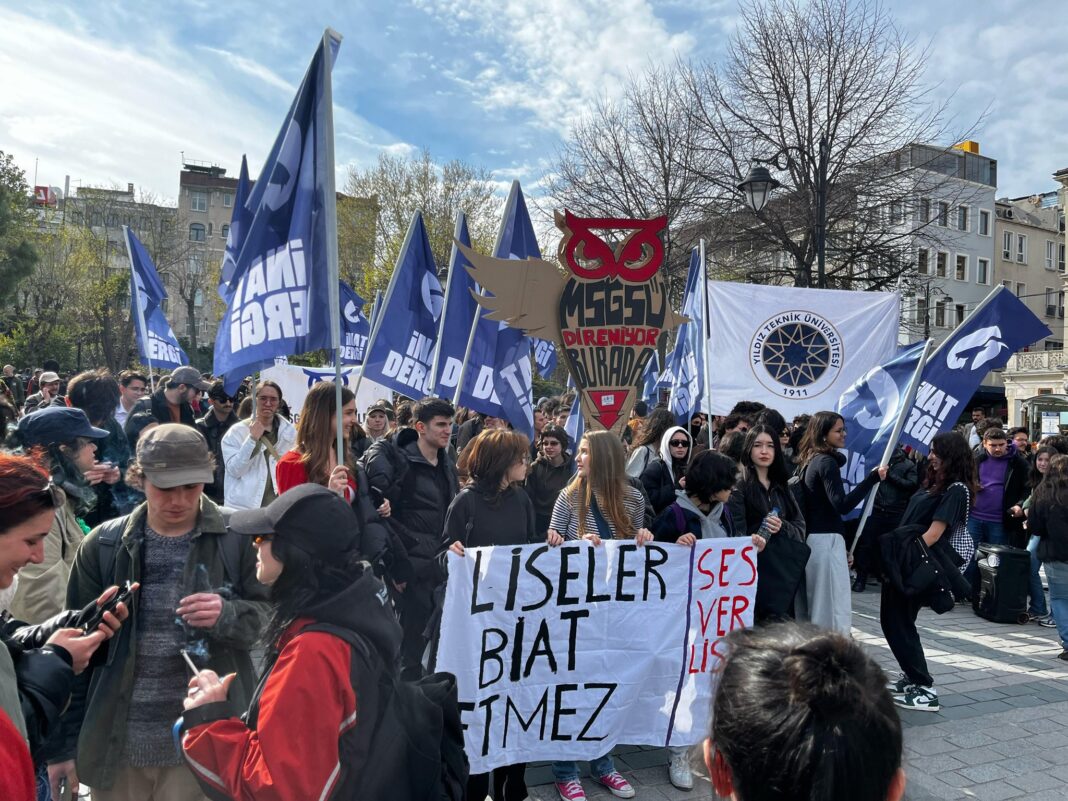Young voters in Turkey are rallying behind the main opposition Republican People’s Party (CHP), while the far-right, anti-refugee Victory Party (ZP) has emerged as a strong third force after the ruling party, according to a new poll by ORC Research.
The survey, conducted June 15–18 on 2,160 participants aged 17 to 29, found that 30.5 percent of respondents would vote for the CHP if a general election were held this Sunday. President Recep Tayyip Erdoğan’s ruling Justice and Development Party (AKP) followed with 21.2 percent, signaling a substantial generational gap in political preferences.
GENÇLERİN OY TERCİHLERİ
"Bu Pazar Genel Seçim Olsa"
▪︎CHP %30,5
▪︎AK PARTİ %21,2
▪︎ZAFER %10,2
▪︎DEM %7,6
▪︎MHP %6,3
▪︎YRP 5,1
▪︎İYİ %4,5
▪︎TİP %3,5
▪︎YMP %2,9
▪︎A PARTİ %2,8
▪︎BBP %2,4
▪︎DİĞER %3,0▪︎15-18 Haziran 2025
▪︎17/29 Yaş – 2160 Katılımcı pic.twitter.com/K7S3Dfii4J— ORC ARAŞTIRMA (@orc_arastirma) June 20, 2025
But the most striking result was the 10.2 percent support for the ZP, led by controversial figure Ümit Özdağ. Long associated with anti-refugee rhetoric and hardline nationalism, Özdağ has gained traction among disaffected youth despite facing legal troubles. He was released from pretrial detention earlier this month after serving time for inciting public hatred and still faces charges of insulting the president, a charge often used against Erdoğan critics.
The ZP’s rise indicates a broader political realignment among young voters. Özdağ’s harsh criticism of the ruling party and his outsider stance have resonated with younger Turks who feel alienated from mainstream politics. In recent remarks, he condemned ongoing corruption probes targeting opposition officials, accusing the government of selective law enforcement and undermining trust in democratic institutions.
The pro-Kurdish Peoples’ Equality and Democracy Party (DEM) came in fourth with 7.6 percent, just clearing the national threshold. Meanwhile, the far-right Nationalist Movement Party (MHP) — a key ally in Erdoğan’s ruling bloc — polled at 6.3 percent, falling below the 7 percent minimum required to enter parliament.
In April 2022 Turkey reduced its national election threshold from 10 percent to 7 percent, a move widely seen as aimed at helping the ruling AKP and its far-right ally retain parliamentary power amid declining public support. The change came as polls showed the MHP struggling to surpass the former threshold, prompting critics to argue that the amendment was motivated more by political survival than democratic reform.
According to the survey, other parties failed to break out of single digits: the Islamist New Welfare Party (YRP) drew 5.1 percent, the nationalist opposition İYİ (Good) Party received 4.5 percent, the Workers’ Party of Turkey (TİP) got 3.5 percent and minor parties remained below 3 percent.
Though the next general election is scheduled for 2028, rising youth discontent and shifting loyalties suggest the political landscape could change dramatically in the coming years. The poll reflects a generation grappling with economic instability, limited job opportunities and frustration with the status quo — conditions that may shape Turkey’s democratic future.

